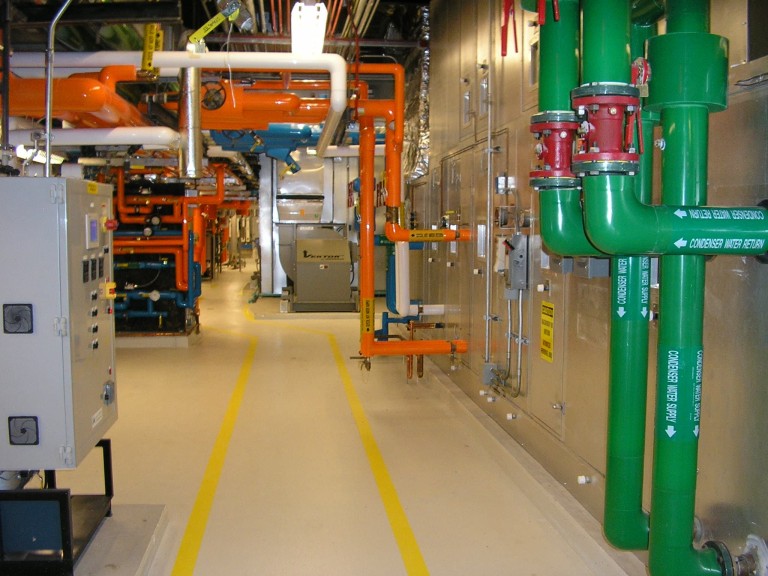
When preparing to work in Biosafety Level 3 (BSL-3) biocontainment facilities, your organization must adhere to biosafety guidelines, with a particular focus on mechanical, electrical, and plumbing (MEP) and biocontainment systems.
When you own, operate, or manage BSL-3 facilities, you’re responsible for ensuring the safety of employees and visitors in the facility, as well as the surrounding community. Accordingly, you must design, build, and use the facilities in keeping with industry best practices and government regulations. Ongoing maintenance and performance verification are also key for your organization to remain in compliance with BSL-3 lab requirements and industry best practices.
You can depend on the experts at Technical Safety Services to help you throughout the MEP testing and commissioning processes. We are quality assurance professionals when it comes to commissioning BSL-3 labs.
Biosafety Level 3 Facilities
As the name indicates, Biosafety Level 3 facilities are specially constructed buildings for studying toxic materials or lethal microbes. Safety is the highest concern.
Often required to obtain immunizations to safeguard themselves against pathogens, workers in BSL-3 labs wear personal protective equipment (PPE) and may also use respirators. The health risks are so great that access is severely restricted. Security protocols include a double set of doors that self-lock and self-close.
Containment Is Crucial
Because BSL-3 laboratories present a potential safety risk to people within and outside the facilities, it’s of the utmost importance that owners and operators keep containment top of mind throughout the design and construction process, as well as during commissioning, operations and maintenance.
You ensure containment by promoting safe work practices, building the facilities securely, and installing state-of-the-art MEP systems.
The Commissioning Process for BSL-3 Laboratories
Biosafety Level 3 labs must undergo a commissioning process from the very beginning, as you plan the facility, design it, and commence building your laboratories.
BSL-3 labs demand special treatment during each phase of development because people’s lives are at stake. You need to foster communication during the design phase, for example, to keep from making disastrous errors during construction. Labs must adhere to specifications before they can open for business. Professionals will verify you have installed equipment properly and will test to verify the facilities operate as intended, per industry standards.
Throughout the process, you should maintain detailed construction documents so the BSL-3 lab is constructed to support the work you will perform in it.
When it comes to shoring up the infrastructure, it pays to rely on the guidance of experts. For MEP commissioning of a BSL-3 lab, you’ll need to have properly designed ventilation systems with redundancy, well-detailed architectural finishes and features, like secured doors, signs that spell out PPE mandates and other lab safety warnings, and eye wash and shower stations.
Of course, safety also involves developing (and practicing) fire and other emergency protocols, including the workers’ options for fast egress.
Contact Technical Safety Services Today for MEP Commissioning Assistance
From verifying room integrity and analyzing primary systems for failure potential to ensuring certification for containment using BSC or HEPA filter systems and verification of MEP system operation, there are many moving parts to consider during MEP commissioning.
Technical Safety Services provides industry-leading MEP commissioning for laboratory facilities. Our experts are standing by to assist your organization through every phase, including:
- Facility program development
- MEP system design and construction
- Performance verification testing
For more information about how Technical Safety Services can help you with MEP testing and commissioning procedures, please get in touch with us today.

